ELLAS Animals INC offers an online Puppy Basics course that covers topics like puppy socialization, potty training, crate training, and bite inhibition. Our course is designed to set an owner/trainer and their new puppy up for success to train as a service dog team. We recommend that the owner/trainer completes the course before bringing the puppy home so they can hit the ground running. We also follow expert guidelines that a puppy should remain with its mother and littermates until it is at least 8 weeks old. However, puppy socialization begins long before that, with the breeder when the puppy is just a few days old, and continues until the puppy goes to their new home, where the new owner/trainer takes over the process. Today’s guest blogger, Mandie Sanderman, is a certified dog trainer as well as a professional whelper, and she discusses her intentional puppy socialization system and how she sets puppies up for success as a future service dog before they even go to their new homes.
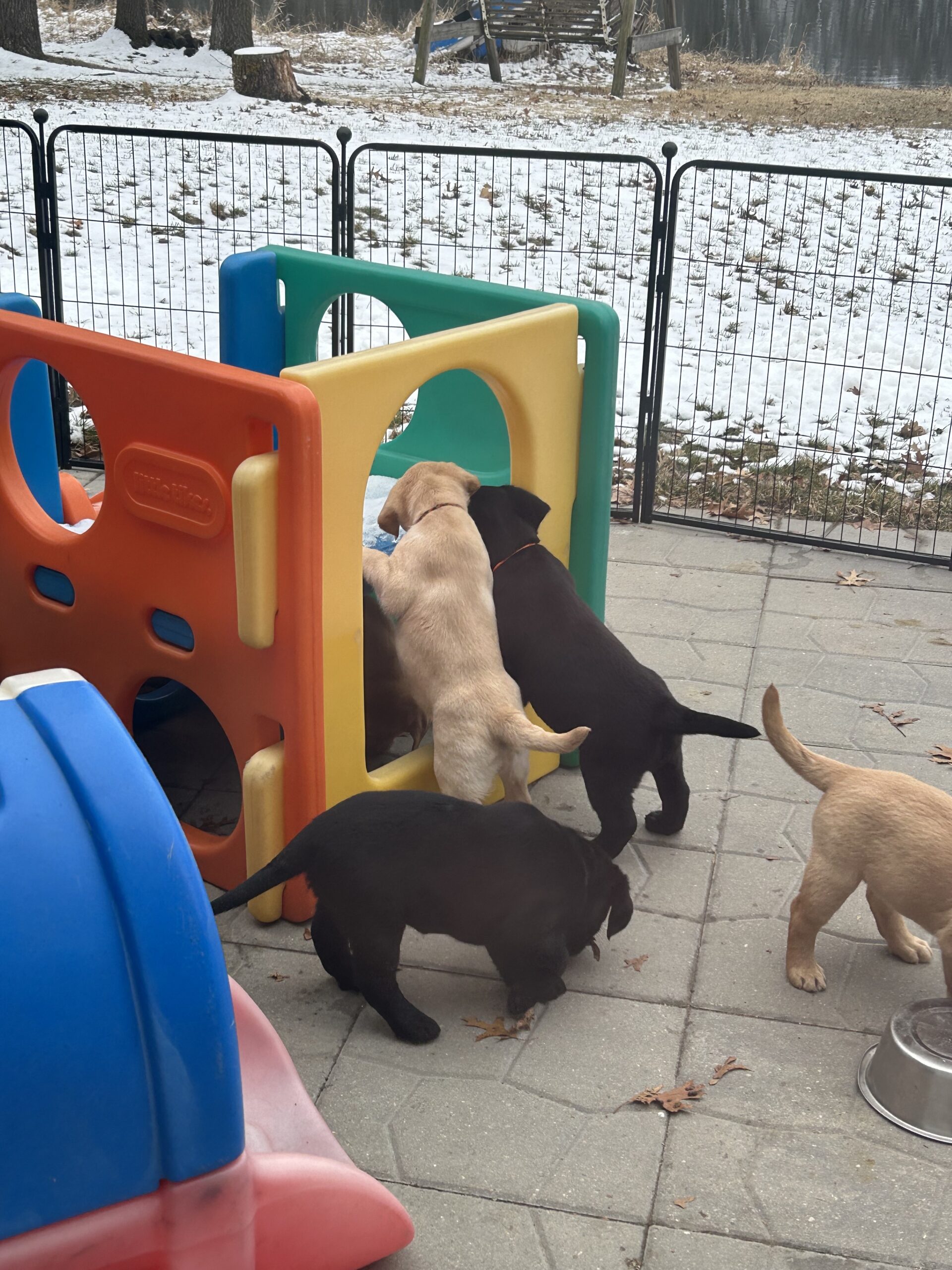
Raising Puppies with Purpose – by Mandie Sanderman
While it is wonderful to be able to rescue a shelter dog as a potential service dog, there are people who may prefer to start with a puppy. When considering breeders, you will want to find one that utilizes an intentional puppy socialization system that gives your puppy the best chance at meeting your needs. As a whelper both for my own females as well as for outside breeders, I use a socialization protocol in which everything is done with intention to provide puppies with a foundation that will allow them to become the best service dog they can be.
Early Neurological Stimulation as Part of an Intentional Puppy Socialization System – the first few days
Starting at 3 days old, puppies begin Early Neurological Stimulation (ENS). With ENS, puppies are exposed to 3-5 seconds of “stress” through specific exercises. There are many benefits to ENS including leading to increased tolerance to disease, increased ability to tolerate stress, stronger heart rates, and stronger immune systems.
Novel Sounds – after the first few weeks
When puppies are 3 weeks old, they start to have exposure to new and novel sounds – this is accomplished by playing a CD of various sounds daily. The sounds include vacuum cleaners, sirens, babies crying, doorbells ringing, fireworks, thunder, dogs barking, and other common sounds puppies will hear as they get older. At this point, we also start to make loud noises from time to time – dropping a dish, clapping our hands, and knocking on the door. These sounds are intended to be short and quick and allow the puppies to hear a sharp noise and then immediately settle. Toys are introduced to puppies that also make noise, balls that rattle when they roll as well as our favorite of the Wobble Wag Giggle ball which makes funny noises as it moves. We also provide “novel” items such tin canisters to play with. These canisters make noises when puppies roll them and they roll in unexpected ways.
Introducing the Crate as Part of an Intentional Puppy Socialization System – after the first month
Once puppies reach 4 weeks old, a wire crate is introduced to their whelping area with a comfy bed inside. For safety reasons, the door to this crate is removed and the puppies are allowed to go in and out as much as they like. This crate serves a few purposes – first, it allows the puppies to become familiar and comfortable with a crate and serves as the foundation for crate training. Second, it allows puppies to begin to problem solve as they can see through the sides but need to figure out that they need to go out the door to get around. It is not unusual for a puppy to see a sibling, toy, etc, out the crate to the side and want to get to it; at this point, they begin to figure out that they need to go away from the “direct route” and through the door to get out. Puppies are also provided their meals in a crate at this point as well. While their kibble meals are still moistened and soft at this point, they do eat them while in a crate and then are taken for a potty break after the meal is over. They still have full access to their momma and get plenty of milk from her as well, adding the positive association of food strengthens the recognition that crates are places where good things happen.
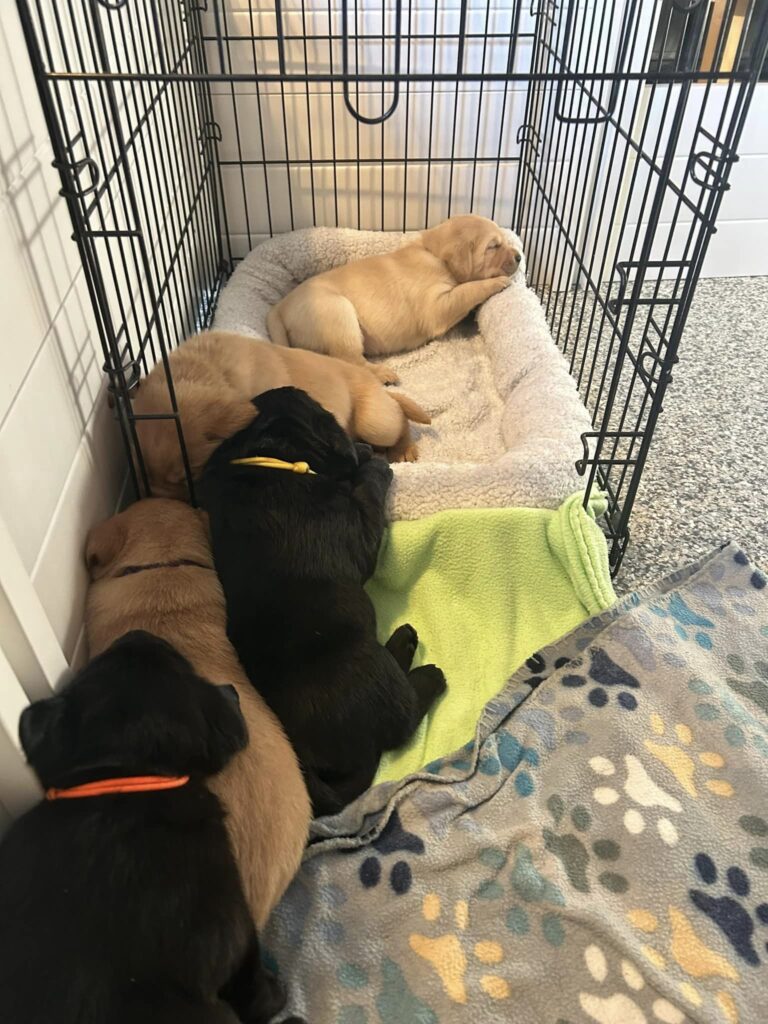
Diverse Surfaces to Develop Confidence
At this stage, puppies also are exploring more and we provide a variety of surfaces for puppies to engage with. Some of the favorite toys that we like to use for puppies include tunnels to crawl through, plastic steps to climb up, toy piano mats to walk on, and upside down garbage can lids to play in. These toys allow the puppies to experience surfaces that move, make noise, and require effort to explore. While the puppies might think they are just playing, we know they are building experiences that allow their confidence to grow.
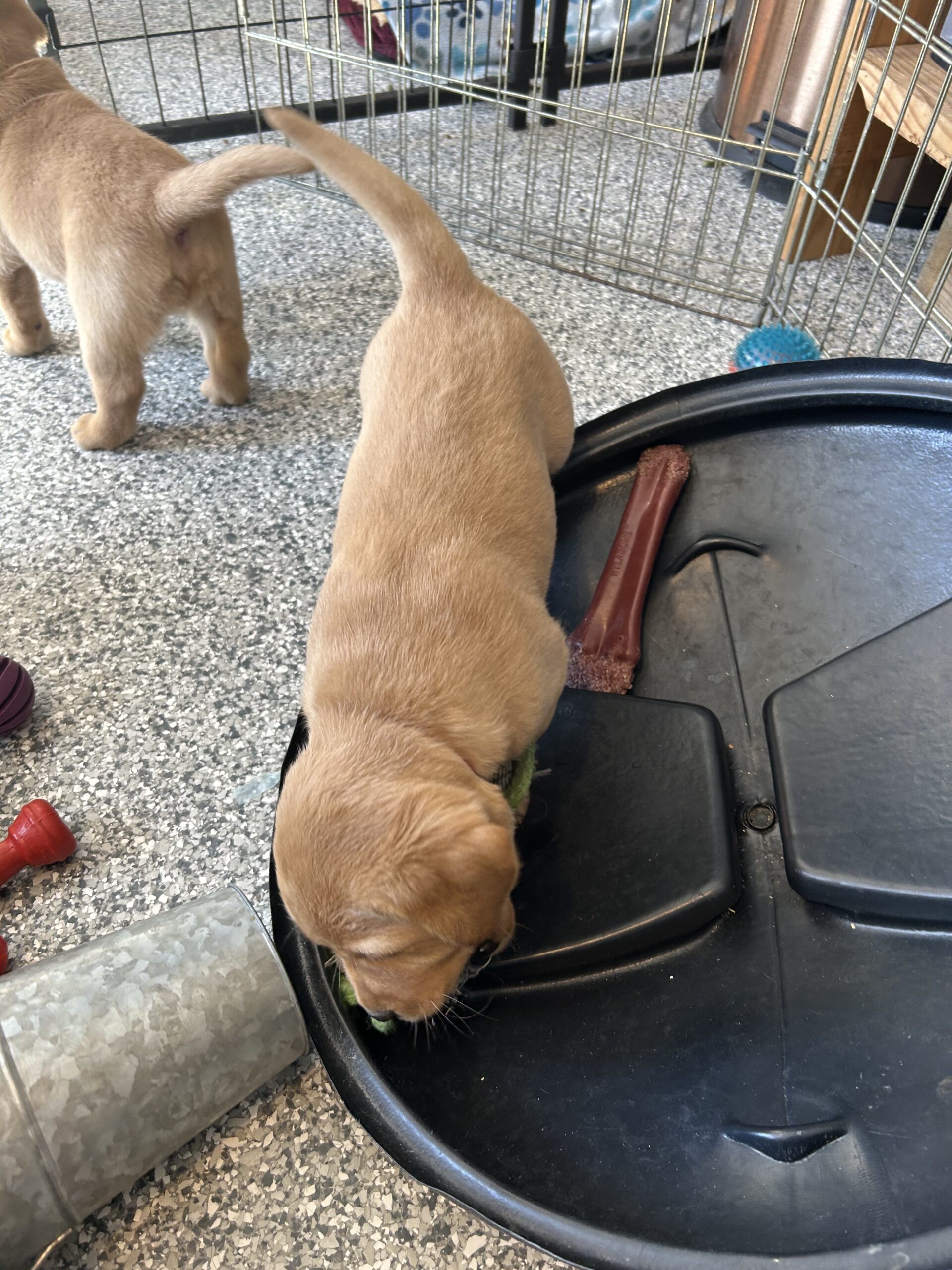
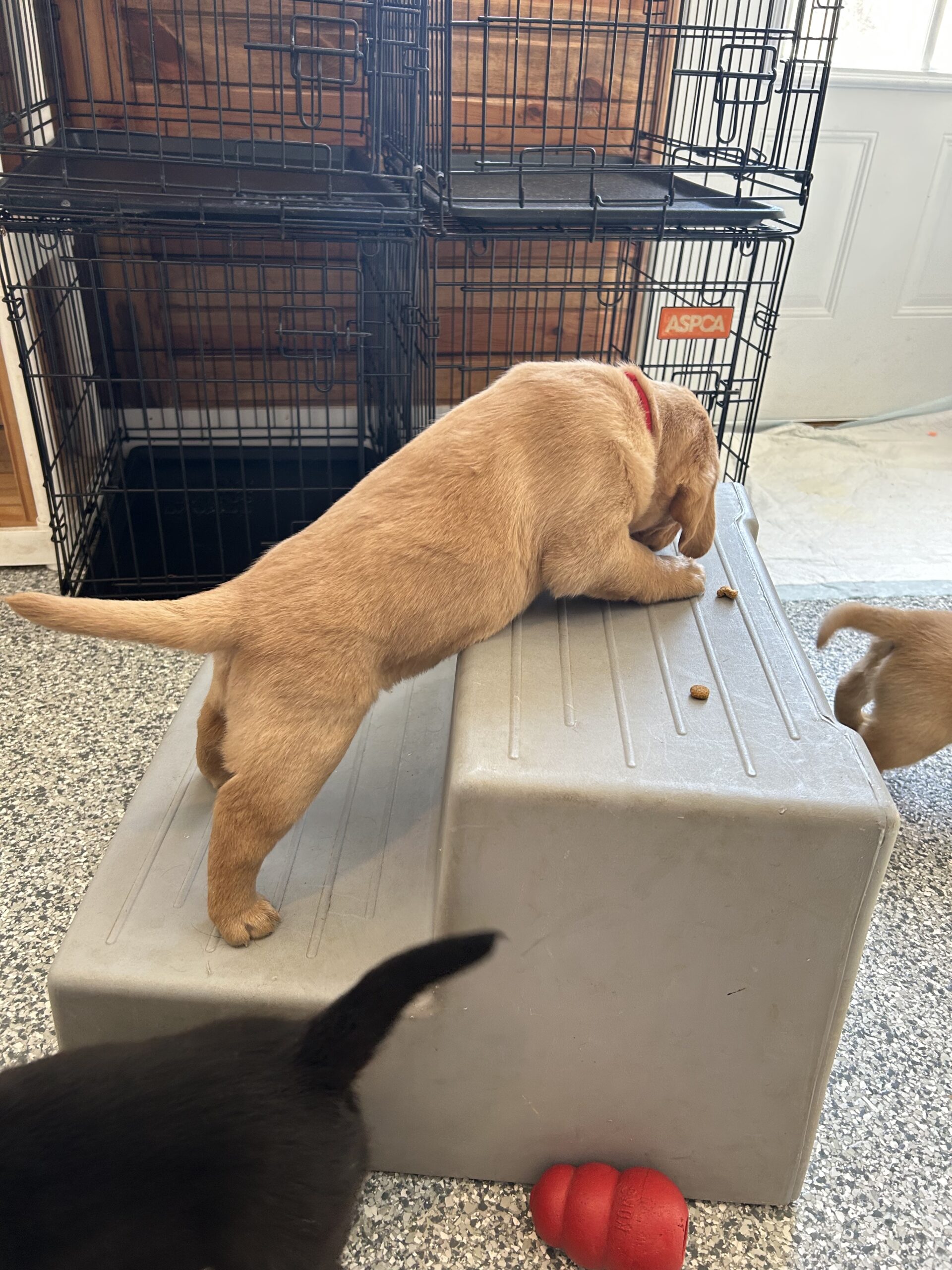
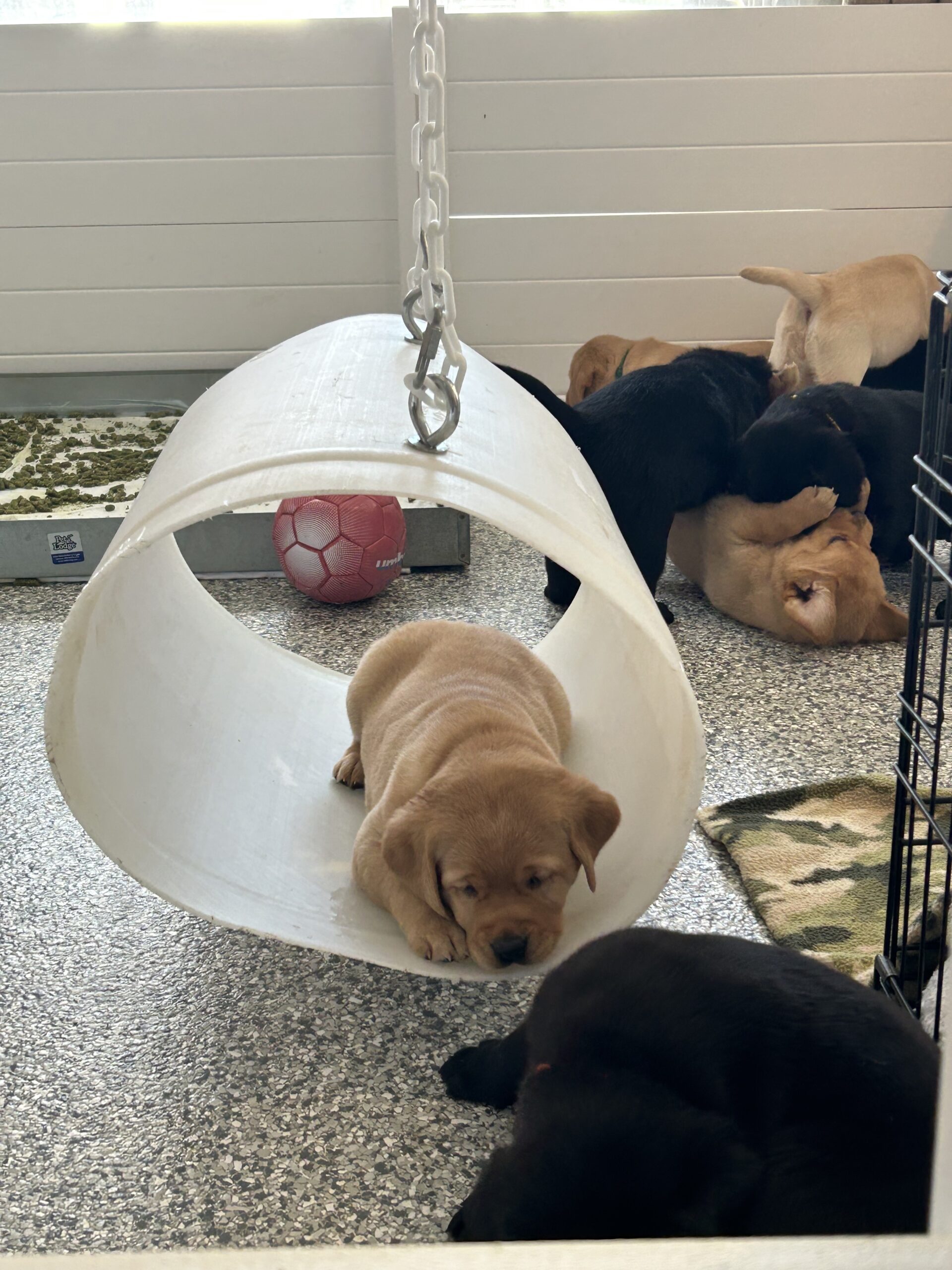
“Manding” During the Second Month
As puppies continue to grow from weeks 5-8, we also begin to work with the puppies on “manding.” Manding is a process that allows puppies to understand that they can communicate with humans. Manding is best explained in the Puppy Culture program, but essentially puppies learn they can “tell” us they want something (like a piece of kibble) by sitting in front of us. We do not “teach” the puppies to sit, but do give the puppies kibble if they sit. They learn very quickly that they can “ask us” for kibble by coming to sit in front of us.
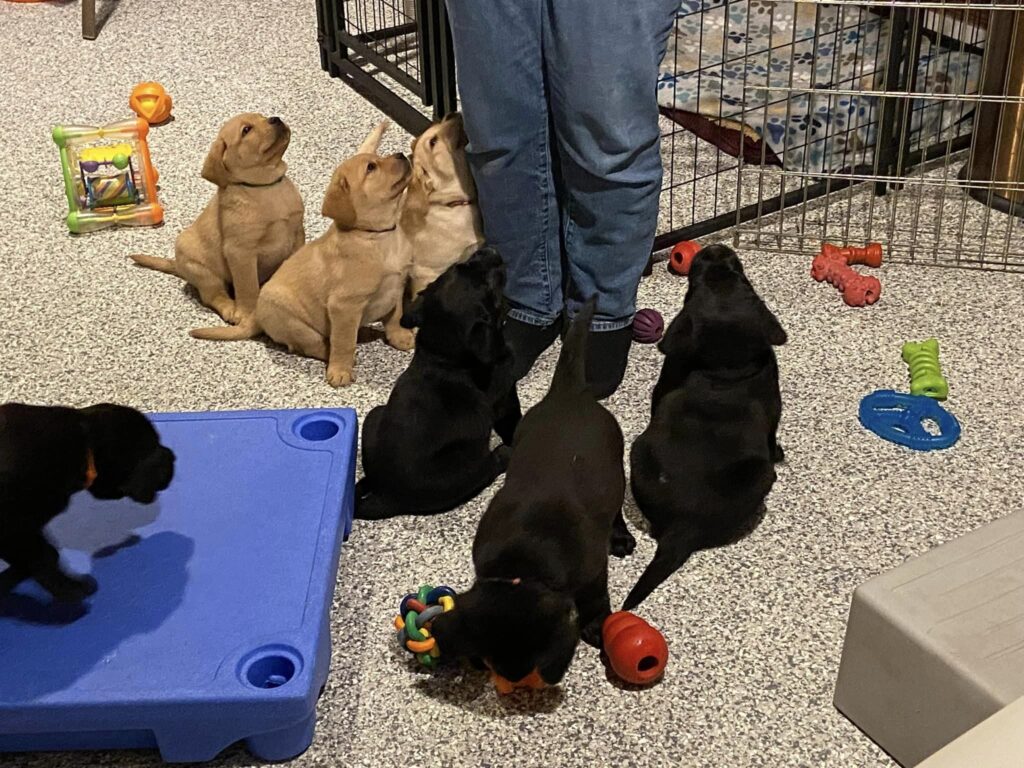
Ask Your Breeder About Their Intentional Puppy Socialization System
Each and every thing that we do with the puppies is done with intention – allowing them to know they are loved while they learn and grow into their full potential to change someone’s life. If you are considering a puppy to start your service dog journey, be sure to ask your breeder about any protocols they have in place to help puppies reach their full potential.
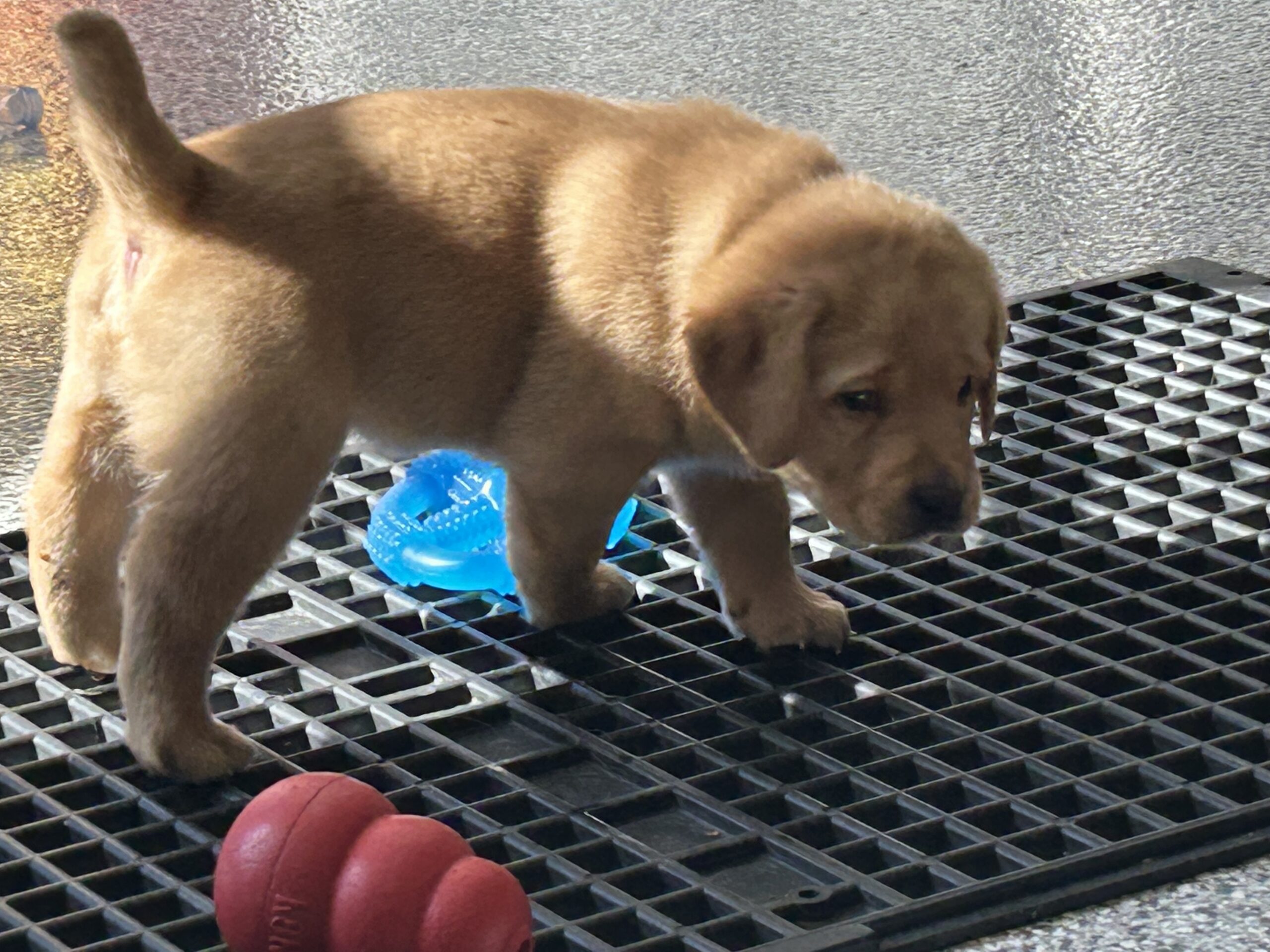
Guest Author – Mandie Sanderman: Mandie lives in Iowa in a “dog paradise” of 10 acres that include a 1/2 acre pond for swimming, dock diving, and fun romps in the water. She works in education as a specialist in the area of science and provides professional learning for K-12 science educators. In addition to her work in education, she also is a certified dog trainer. Mandie’s dog training business, Precious Paws, also includes providing whelping services where she is responsible for delivering litters of puppies and providing those puppies with an amazing start in life to allow them to reach their full potential. She is known for producing litters that excel in the areas of service work, therapy dogs, and emotional support animals.
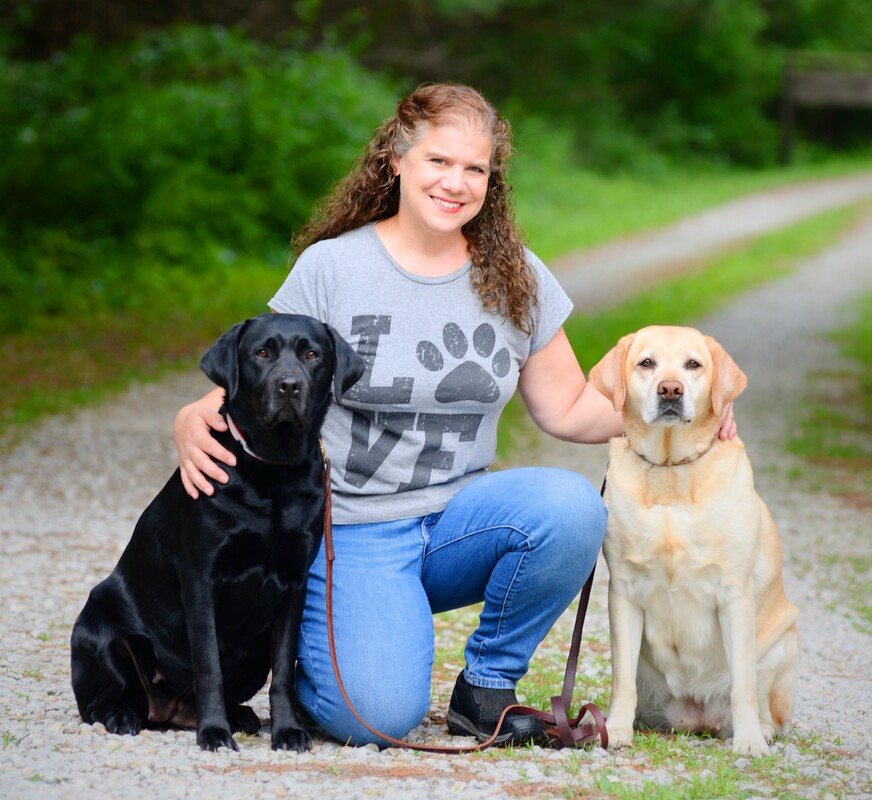
Nothing in ELLAS Animals INC’s website or blog is intended as medical, legal, or financial advice. We receive no compensation for recommendations or reviews.
